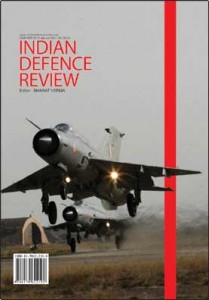“¦all flow of intelligence products should be directed towards another single authority, the National Intelligence Coordinator (NIC) who will prepare the national intelligence estimates, analysis and assessments and besides, identify the intelligence gaps to different agencies.
The recruits will be members of the in-house services. No outside service including IPS should be allowed to dominate though there may be a revolving door policy to admit anyone from anywhere found suitable.
The creation of an elite cadre within the organisations cannot be over emphasized. Mr BN Mullick, the second DIB in the country after independence, had created an earmarking scheme in the IB which became operational in 1954, earmarking 4 or 5 top candidates selected by UPSC for IPS. They worked in the IB for their entire career after initial training. With further rigorous training within the IB, they became an elite core, extremely efficient, committed, and excelling both in operations and analysis. They employed caution but were not risk averse. All the DIBs subsequently have come from this corps. Several years later the scheme was wound up due to bureaucratic pressure, opposing continuous stay of such IPS officers in Delhi and other posts of IB when they could not have a similar privilege of spending their entire career outside their state cadres. The last DIB from the EMS retired last year. The political controllers of the day could not prevent the demise of this scheme. It is a telling commentary on their vision, understanding and management of intelligence.
Talking of commitment an anecdote will speak volumes. In 1988 when Afghanistan had become an extremely dangerous place during President Najibullah’s regime the diplomats of the western countries including the US had been withdrawn en bloc. The Indian Government also recalled their staff with the diplomats to Delhi. The Foreign Secretary and the Indian Ambassador at Kabul before returning, advised the R&AW to get their team also back to Delhi. But, this team stayed on and kept the Indian flag flying over the Embassy while the MEA staff went home.
The structures of the organisations have to be founded in law to ensure autonomy and insulation from non professionals. The law should provide for an Ombudsman as well as parliamentary committees that can evaluate performance with respect to objectives of the prescribed charters but all operational matters should remain outside their jurisdiction. There should, thus, be no executive control save as provided under the parliamentary laws.
| Editor’s Pick |
Accepting autonomy for these organisations will remain a touchy question with the political and bureaucratic classes in the country. Police reforms remain to be carried out in the country despite Supreme Court judgments and prodding since the State Governments do not wish to loose their control over such a powerful instrument as the Police. The CBI also remains similarly shackled. Therefore, despite the growing awareness that intelligence reforms are the need of the day, meaningful progress in this field will remain unpredictable.
The reforms, as and when the discourse reaches the stage of finality, should also focus on the role of the National Security Adviser (NSA) about which there is much confusion today. Is he an intelligence czar or the master co-coordinator or the principal analyst for the Cabinet Committee of Security (CCS), the highest policy making body in the country? Some enlightened and knowledgeable people hold the view that he can be dispensed with. Besides, if he is to remain constantly traveling to foreign parts, one will start wondering whether he can do justice to all the three roles combined. Ideally, he should be the recipient of finalized assessments on the basis of which he places before the CCS a range of considered scenarios for policy options.
On the other hand, all flow of intelligence products should be directed towards another single authority, the National Intelligence Coordinator (NIC) who will prepare the national intelligence estimates, analysis and assessments and besides, identify the intelligence gaps to different agencies. He will also be responsible for ensuring coordinated field actions, especially during fast moving developments.
 The authority for executive control to bring about coordination thus rests at his level. Operational responsibility will be the business of the agencies. In a democracy like India with multi faceted challenges of its external and internal realities, graduating from a regional power to a world status, from a soft power to hard power, retaining two separate institutions, NSA and NIC, would be advisable, the latter feeding the former on assessments. The former will have a much wider canvass to take care of with foreign policy increasingly getting entwined with economic and defense real politick calculations. The latter will provide the material and the evidence to formulate and tighten the nuts and bolts of policy.
The authority for executive control to bring about coordination thus rests at his level. Operational responsibility will be the business of the agencies. In a democracy like India with multi faceted challenges of its external and internal realities, graduating from a regional power to a world status, from a soft power to hard power, retaining two separate institutions, NSA and NIC, would be advisable, the latter feeding the former on assessments. The former will have a much wider canvass to take care of with foreign policy increasingly getting entwined with economic and defense real politick calculations. The latter will provide the material and the evidence to formulate and tighten the nuts and bolts of policy.




